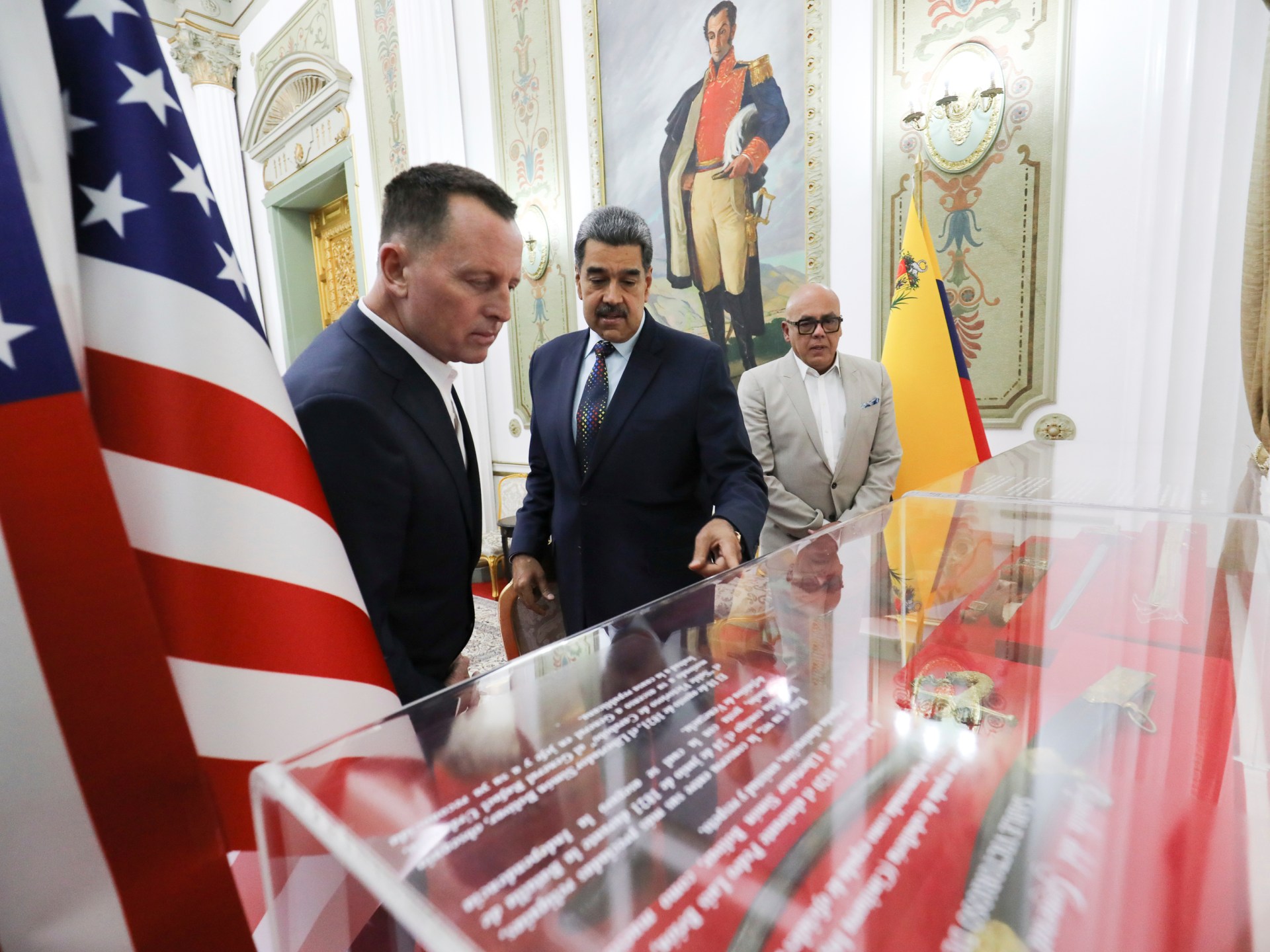After being detained in Venezuela for almost six months, a US citizen has been relocated to the US.
Joseph St. Clair, a veteran US Air Force veteran, was detained in November of last year, but his family confirmed his release on Tuesday.
Scott and Patti, St. Clair’s parents, said in a statement that “we are still processing this news, but we are overwhelmed with joy and gratitude.”
Richard Grenell, the US president’s special missions envoy, later stated on social media that he had met with Venezuelan officials to discuss the release.
Grenell attributed St. Clair’s liberation to Trump’s “America First” political platform.
He wrote, “Joe St. Clair is back in America.” “To negotiate an America First strategy, I met Venezuelan officials in a neutral country today. Trump’s campaign puts Americans first, which only makes this happen.
According to a report from anonymous sources with knowledge of the negotiations, Grenell and Jorge Rodriguez, the president of Venezuela’s National Assembly and ally of Nicolas Maduro, spoke about St Clair’s case on Tuesday.
A deal was reached to extend Chevron’s license to operate in Venezuela by 60 days, according to a report from Reuters and another news agency, Bloomberg.
In February, the Trump administration announced that it would revoke the permit because Venezuela had not upheld its commitment to fair elections. On May 27, the license was scheduled to expire.
The US Treasury and the Department of State will likely need to approve any extension.
The country’s economy is largely fueled by oil. However, Venezuela has been hit by an economic crisis since the mid-2010s, pushing even the most basic necessities, like food and medicine, beyond what some families can afford.
The UN claims that this and other alleged political repression have led to a nearly 7.9 million person eviction from Venezuela.
Venezuela made a commitment to electoral reforms in 2023 as part of the US-commended Barbados Agreement. Following the signing of the deal, then-US President Joe Biden eased restrictions on Venezuela’s oil industry.
However, Venezuela’s presidential election on July 28, 2024, received a lot of negative press for being illiberal. The electoral authorities did not provide any evidence of Maduro’s victory despite his and his supporters’ claims that he had won a third term.
Instead, the opposition coalition released voting records that it claimed demonstrated its candidate’s landslide victory. That led to widespread protests and a deadly law enforcement crackdown.
Trump had pursued a “maximum pressure” campaign against Maduro’s government during his first term in office, offering a $15 million bounty for information leading to the Venezuelan leader’s arrest from 2017 to 2021.
However, in his second term, Trump may need Venezuela’s assistance in achieving his “mass deportation” goals.
Trump has indicated a willingness to negotiate with Maduro since taking office in January. In Caracas’ capital, he even invited Grenell to meet with Maduro in person in late January. All Americans detained in the country were also provided with a copy of Grenell’s directive.
Grenell made it known that he was traveling with six Americans who had previously been held in Venezuela.
According to US Secretary of State Marco Rubio, nine Americans were still in Venezuela’s custody in March.
Venezuela has started accepting deportation flights from the US, despite having previously rejected immigrants who had been taken out of the country.
Source: Aljazeera

Leave a Reply